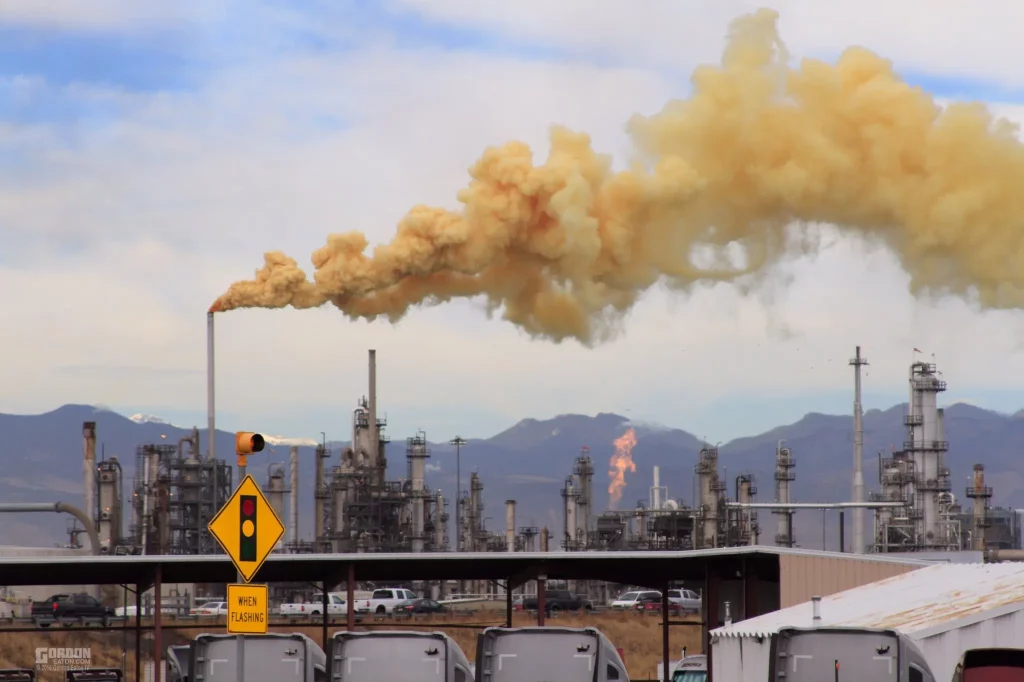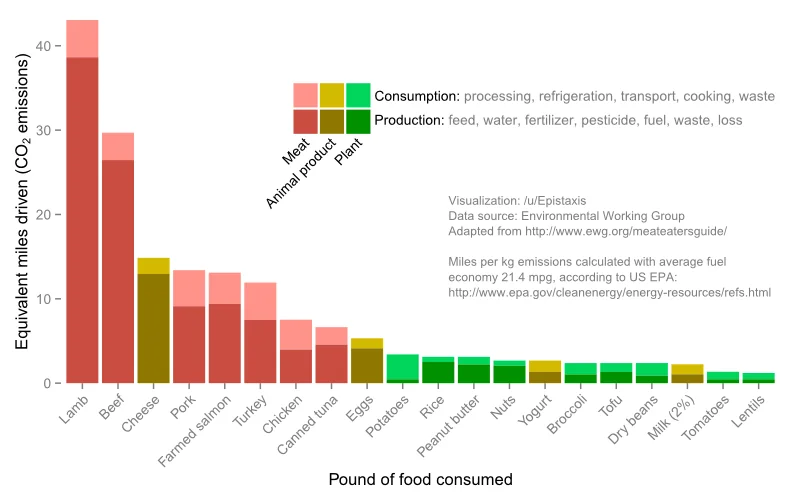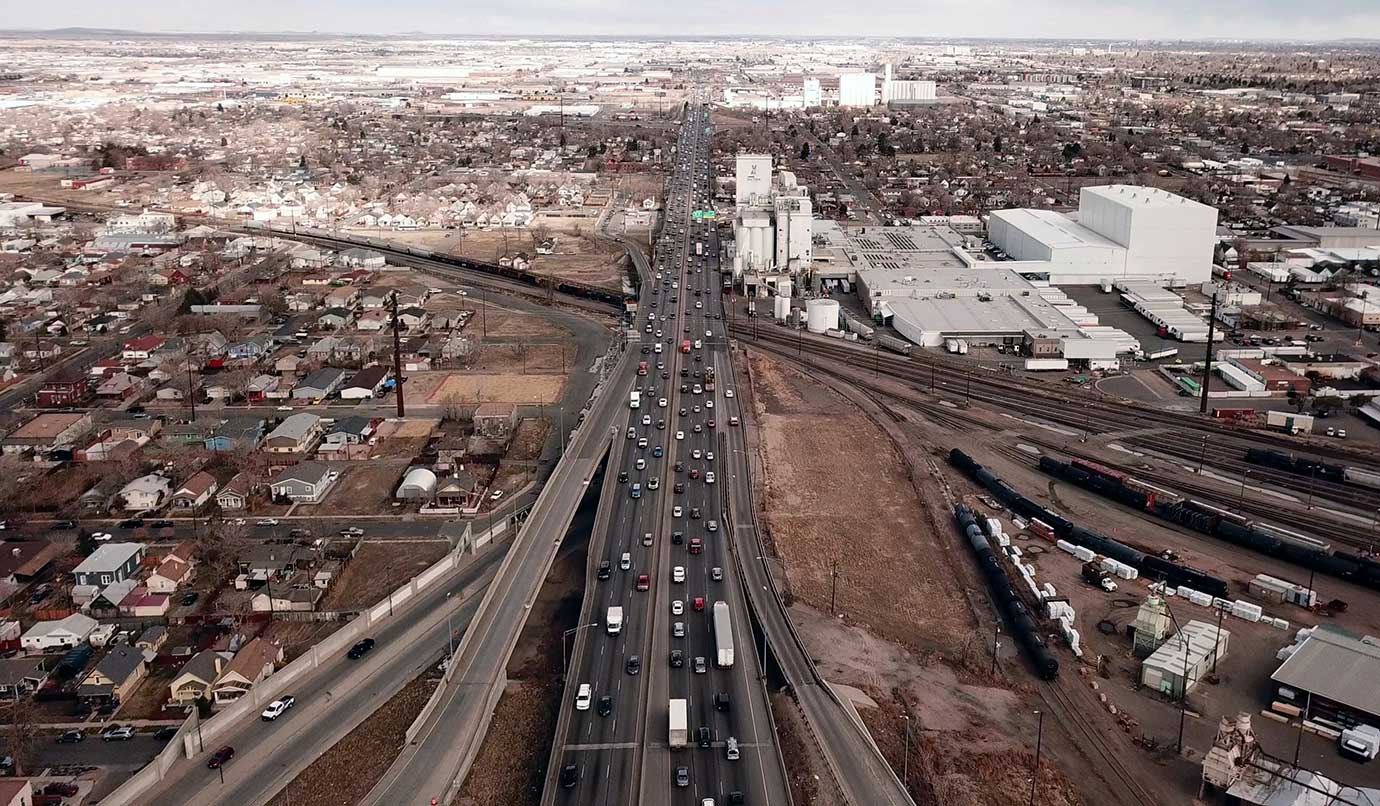The slaughterhouse industry has unleashed its latest weapon in the battle for public opinion: election disinformation. A recent study published by CSU’s Regional Economic Development Institute is being heavily promoted with dark money from meat industry groups, providing voters with a distorted view of the economic impact of the Denver slaughterhouse ban (also referred to as ‘Initiated Ordinance 309’).
A Study Steeped in Industry Ties
While claiming impartiality, the study’s authors have deep ties to the meat industry. One was formerly named “Meat Processing Magazine’s Rising Star,” while another’s staff page described her as a “Meat Specialist.” This study comes on the heels of a report earlier this year criticizing CSU for generating skewed research favorably portraying animal agriculture while receiving considerable funding from the industry. A recent report found that CSU has received at least $750,000 from livestock trade groups, feed companies, and JBS, along with a million-dollar grant from the USDA. This raises questions about the objectivity of CSU’s economic analysis of the slaughterhouse ban.
What’s Missing from the Analysis?
A truly impartial study should quantify both costs and benefits to facilitate an informed public debate. However, the CSU report conveniently ignores the potential economic benefits and cost savings of removing slaughterhouses from our city.
1. The Cost of Polluting Denver’s South Platte River
Denver’s only slaughterhouse, Superior Farms, is located along the South Platte River, a source of drinking water for downstream communities and a hub for recreational activities. The river flows through Downtown Denver and several iconic West Denver neighborhoods, borders 20 public parks, and flanks nearly 10 miles of bike trails. Meanwhile, Superior Farms has been violating the federal Clean Water Act for over four years by failing to report its discharge into the South Platte. The Denver slaughterhouse’s Clean Water Act violations pose serious risks to both human health and aquatic life. What’s the true cost to Denver residents and tax-payers allowing pollution to continue unchecked in our community?

2. The Cost of Foul Odors in Globeville
To make things worse, Superior Farms lamb slaughterhouse in Denver, Colorado also emits a distinct, pungent odor that permeates one of the most polluted residential zip codes in the United States – 80216. The foul stench from the kill floor reaches beyond the walls of Superior Farms’ slaughterhouse and permeates the surrounding streets, homes, and bike path in the neighborhood. As a resident of the neighborhood shared, “There is the smell of death in the air around the Superior Farms slaughterhouse.” The stench is one reason entrepreneurs avoid Globeville and has made it harder for homeowners in the neighborhood to build wealth through their homes (the primary way most Americans build intergenerational wealth). How much economic value could a prosperous Globeville business district generate for its residents if air pollution were no longer a barrier?

3. The Cost of Excessive Water Consumption
Did you know that slaughterhouses typically use a staggering 1,000 gallons of fresh water per pound of lamb produced? In Denver, a city that has faced severe drought conditions and water shortages, this level of water usage is unsustainable. The Superior Farms Denver facility alone is likely consuming millions of gallons of water annually. This essential resource could be better allocated towards feeding Denver residents with plant-based staples rather than producing a premium product for upper-class consumers. What would be the cost to our community if we continue to allow such water-intensive operations in a drought-prone region?
4. The Cost of Climate Change Mitigation
Denver’s slaughterhouse processes lamb meat, one of the most carbon-intensive foods, with a carbon footprint that far exceeds that of most other proteins. The slaughterhouse contributes significantly to greenhouse gas emissions through both its operations and the supply chain it supports. As climate change intensifies, Denver faces increased risks of severe weather events, including more frequent and intense droughts and wildfires. These events have real economic costs. How much will Denver residents and businesses end up paying in climate mitigation costs if we don’t take action now?

5. The Cost to Public Health
Industrial animal farming and slaughterhouses pose significant public health risks. These facilities can be breeding grounds for zoonotic diseases – illnesses that can jump from animals to humans. The COVID-19 pandemic has starkly illustrated the potentially devastating economic impacts of such diseases. Moreover, slaughterhouse workers face high rates of injury and illness, placing additional burdens on our healthcare system. How much could we save in healthcare costs and lost productivity by mitigating the spread of zoonotic diseases and improving worker safety?
Not taking into account these impacts, according to biostatistician Dr. Sean Rice, “would be like doing an economic analysis of all the losses from reducing coal production without attempting to put numbers on the benefits of reduced climate change.”
Job Losses: A Closer Look
The study’s projection that the Denver slaughterhouse ban (Ordinance 309) would lead to the loss of thousands of jobs is hard to believe, given that the Denver slaughterhouse employs only 160 people. The truth is, Superior Farms Denver is only 1 out of 21 total lamb and sheep slaughterhouses in Colorado. While other jobs could be indirectly affected, CU Denver Economist Dr. Kyle Montanio notes that, “There is no reason to expect the closure will eliminate all jobs indirectly related to a single facility. Though impacted, most will weather the storm as we have seen during similar scenarios.”
Interestingly, the study acknowledges the closing of a comparable slaughterhouse in Greeley, Colorado in 2020 but fails to use this real-life case study. As Dr. Montanio observes, “From the much larger closure, we do not see the majority of sheep ranchers losing their livelihoods.”
It’s also worth noting that the proposed ordinance specifically directs the city to address job losses due to Initiative 309 by prioritizing impacted Denver slaughterhouse workers in workforce training and employment programs funded by the $40M annual Climate Protection Fund.
Questionable Methodology
The study also relies on uncited assumptions to paint an alarmist scenario rather than offering a realistic analysis. While the projected economic consequences of the Denver slaughterhouse ban may appear startling at first glance, a closer examination reveals significant flaws in the research:
- Much of the study’s data is based on private communications with Superior Farms and protected datasets, making them impossible to verify independently.
- The study uses a multiplier effect to estimate indirect job losses, assuming that losses will not only continue but worsen over time. Dr. Sean Rice, a biostatistician, calls this assumption “counterintuitive and unexplained.”
Putting the Numbers in Perspective
Even if we accept the study’s most pessimistic scenario (which economist Dr. Kyle Montanio describes as “so far beyond reasonable that it is concerning it is even listed”), the opposition’s projected statewide economic impact of the Denver slaughterhouse ban amounts to just 0.163% of Colorado’s $529 billion GDP. To put this in context:
- It’s less than the economic activity generated by Colorado’s pet grooming industry
- It’s less than half the economic activity generated by candy sales in the state
While any job loss is significant to those affected, it’s essential to view these potential impacts within the broader context of our robust state economy. The economic impact of the slaughterhouse ban on the Colorado economy is likely to be minimal, especially considering that Superior Farms, a business with an annual revenue of $382 million, may choose to relocate to Adams or Weld County, rather than completely shutting down their facility.
The Bigger Picture
As we grapple with persistent climate impacts and diseases linked to factory farming, it’s crucial to consider the broader implications of our choices. While there may be some short-term effects on the lamb industry, the impact of banning slaughterhouses on food prices (specifically the price of lamb meat) is likely to be minimal, as the market adjusts and alternative sources are found. In fact, the Center for Responsible Food Business published their own analysis predicting that Initiated Ordinance 309 would actually strengthen the American food system.
When markets fail to protect people, animals, and the environment, we as voters and residents have the power to enact change. As you consider this important ballot measure, we urge you to look beyond the alarming projections and inflated figures presented by industry-backed studies. While change comes with expected challenges, it’s time we reassess our priorities and say no to the outdated, dangerous, and unsustainable slaughter industry. By critically examining the economic impact of the Denver slaughterhouse ban, we can make informed choices that consider the long-term economic and environmental impacts of our decisions. By leaving slaughterhouses behind this November, we can create a cleaner, healthier, and more ethical city for generations to come.

